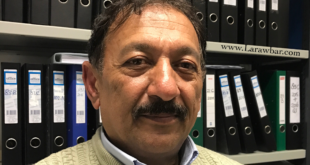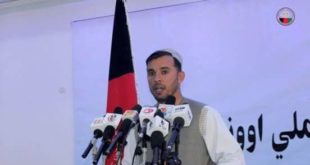Mar 19th 2008 | KABUL
With thanks to the The Economist
Afghanistan has politics and electioneering as well as fighting and bombs
“IF THEY want to hold all these elections then all Afghans will ever do is vote.” So says the head of the Afghan parliament’s elections committee, Salih Mohammad Registani. Having lived without democracy for 30 years, Afghans suddenly face a surfeit of it.
According to the 2004 constitution, the country will go to the polls in 11 of the next 17 years, the result of holding presidential, parliamentary and provincial-council elections on different cycles. If district-council elections were held on yet another separate cycle (as is proposed), the calendar would become more crowded still. Quite apart from voter fatigue, the financial burden will be enormous for the world’s fifth-poorest country: it costs about $150m to hold each poll.
President Hamid Karzai, who completes his first term of office in May 2009, wants to synchronise the presidential and parliamentary cycles. This makes sense, not least because the elections will require a surge of international troops to guard against Taliban attacks on polling booths. But that would require parliamentarians to forgo one year of their term, an idea they do not like. The lower house voted this month to hold elections in consecutive years.
Many parliamentarians say that combining the polls would anyway require changing the constitution, which can only be done by a loya jirga (grand council)—which itself would have to be elected. And if a loya jirga were convened, it might want to tinker with the constitutional settlement in other ways—by trimming the power of the president, making Afghanistan “more Islamic” or reducing the 25% of seats reserved in parliament for women.
Time is short. Voter registration has to take place this summer if polls are to go ahead next year. So far, no plans are ready. The parliament has not yet decided which electoral system to use for the parliamentary vote, or even whether to allow political parties to take part (they were banned in the last election). Parliament may not change the electoral law in the final year of its term, so its members have only a few weeks left to take these decisions. In short, Afghanistan’s arguments over the technicalities of voting are already complex. And that is before voters start thinking about whom to vote for.
Mr Karzai has not said he will run, though most people expect him to (not least, the Western governments which back him). His popular support, however, is lukewarm at best. His government has been tarnished by charges of incompetence and corruption, while his international backers have struggled to fulfil promises to rebuild the country. Large parts of the south, Mr Karzai’s heartland, have descended into insurgent-inspired chaos. The president has become increasingly critical of the West, and particularly of Britain, the Afghans’ historic foe.
But, as in 2004, Westerners think Mr Karzai will prove the worst Afghan leader except for all the others. He is from the dominant Durrani federation of the majority Pushtun tribe. He participated in the jihad against the Soviet occupiers but does not have blood on his hands from the civil war that followed. He did not leave his homeland for sanctuary abroad. (Those who did are called dogwashers: the Taliban leader, Mullah Omar, said they washed the dogs of rich Americans.)
No other prominent politician has that mix. Afghanistan may have capable technocrats on call, such as Ehsanullah Bayat, a telecoms mogul, Amin Arsala, a former vice-president, and even, improbably, America’s (Afghan-born) ambassador to the United Nations, Zalmay Khalilzad. But they lived abroad. It also has former mujahideen commanders such as Burhanuddin Rabbani and Younis Qanooni, both Tajik leaders, and Gul Agha Sherzai, the energetic major of Jalalabad, whom Mr Karzai dubs the bulldozer. But they are tarnished by warlordism. An excess of would-be leaders, in short. And an excess of ways to vote for them.
 لراوبر ویب پاڼه لراوبر يو افغان – تازه خبرونه
لراوبر ویب پاڼه لراوبر يو افغان – تازه خبرونه


